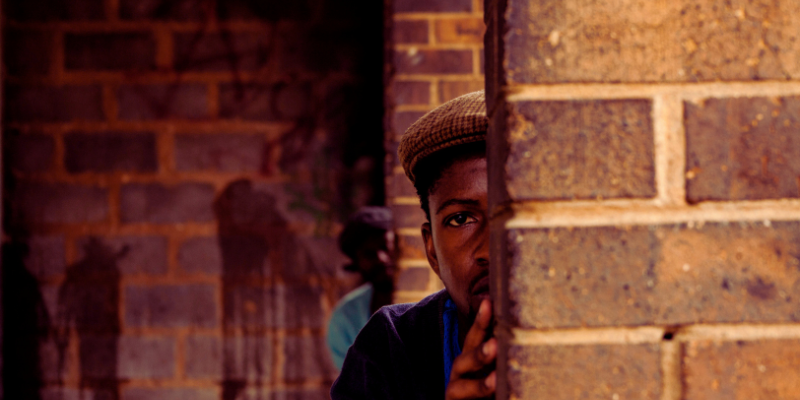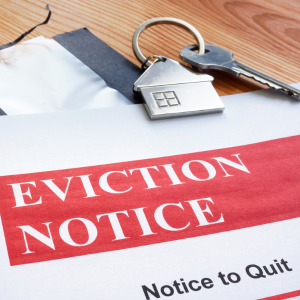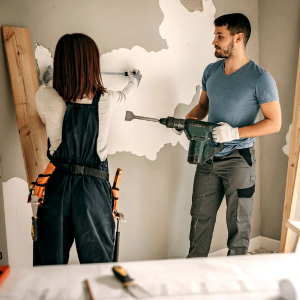
Understanding North Carolina Squatter Rights and Landlord Obligations
Understanding squatter rights is vital for Charlotte homeowners dealing with squatters who want to sell their homes in North Carolina. Individuals squatting or living on someone else’s land without permission may acquire certain rights under certain circumstances.
According to North Carolina law, if a squatter occupies a property openly and continuously for an uninterrupted period of 20 years, they might claim adverse possession. Homeowners must be aware of this potential challenge when dealing with unwanted occupants.
Landlords in Charlotte must follow legal procedures when addressing squatters to avoid potential lawsuits or complications during the selling process. This includes serving proper notices and potentially pursuing eviction through the court system if necessary.
By understanding these legal frameworks and their responsibilities, homeowners can be better prepared to resolve disputes with squatters quickly and within the bounds of state law. Zack Buys Houses is here to help. Contact us today.
Legal Considerations for Evicting Squatters From Your Home

If you want to sell your Charlotte home and deal with squatters, you must know the legal aspects of evicting them. Property owners in North Carolina must follow specific steps when evicting squatters to ensure they follow the law and avoid possible legal consequences.
According to state law, the first step is to find out if the people living there are squatters. Squatters live on someone else’s land without permission from the owner. Then, the property owner must go to court and file an unlawful detainer case to start the official eviction process.
It’s crucial to serve proper notice, usually a 10-day demand for possession, which informs the squatters of their need to vacate. Failure to adhere strictly to these legal requirements can lead to delays or complications in removing unauthorized occupants.
Engaging an experienced attorney who specializes in real estate or landlord-tenant law can help navigate these complexities effectively. By following the correct legal channels, homeowners increase their chances of reclaiming their property swiftly and avoiding further financial losses related to unauthorized occupancy.
Effective Communication Tactics with Unwanted Occupants
Effective communication tactics are crucial when dealing with squatters in your Charlotte property. Start by approaching the situation calmly and respectfully to avoid escalating tensions.
Make your rights as the property owner clear, and ensure the people staying there without permission know what the law says about their stay. If you want to solve the problem peacefully, you should listen to what they say about their problems or reasons for being there.
You could offer to help them find other housing or give them a fair amount of time to leave as part of an agreement that works for both of you. Keep a professional attitude throughout this process and carefully record all exchanges. This can be very important if you need to go to court later.
Engaging mediators or local authorities might also benefit if direct communication is ineffective.
The Role of Professional Mediation in Resolving Tenant Disputes
Professional mediation is critical in resolving tenant disputes, especially when dealing with squatters in Charlotte. Experienced mediators specialize in conflict resolution and can facilitate communication between homeowners and squatters to find mutually agreeable solutions.
This method often keeps people out of long court fights, which can be expensive and time-consuming. Mediators provide a controlled space where both sides can voice their concerns and work together to find a solution that protects the rights of property owners while also meeting the needs of residents.
In Charlotte’s real estate market, professional mediation can significantly expedite selling a home that unauthorized tenants occupy. By engaging mediators familiar with local laws and regulations, homeowners can navigate complex situations more effectively, ensuring compliance with eviction procedures while minimizing disruptions to the sale process.
Professional mediators are skilled at turning hostile situations into constructive conversations, which makes it possible to settle tenant-landlord disputes involving squatters more effectively.
Community Resources and Support Networks for Landlords in Distress

Landlords in Charlotte facing the challenges of squatters on their property can find invaluable support through various community resources and networks designed to alleviate distress. Local organizations such as the Charlotte Landlord Association offer guidance and advocacy, providing landlords with information on legal rights and eviction procedures specific to North Carolina.
Property owners can also use neighborhood mediation services, which are trained to settle disagreements without going to court, saving them a lot of money. The city also holds workshops and seminars on landlord-tenant rules that teach people how to deal with people who aren’t supposed to be there.
Online forums and social media groups dedicated to landlord issues create a platform for sharing experiences and advice, fostering community among property owners dealing with similar challenges. Legal aid clinics provide pro bono assistance or affordable consultations for landlords pursuing eviction cases. At the same time, local law enforcement agencies often collaborate with landlords to address security concerns related to vacant properties.
Collective resources like these empower renters by giving them the tools and help they need to sell a home with squatter problems smoothly.
Long-term Solutions to Prevent Future Unwanted Occupancies
To effectively prevent future unwanted occupancies, homeowners in Charlotte must implement long-term solutions that address the root causes of squatting. One crucial step is to enhance property security by installing robust locks, security cameras, and alarm systems to deter potential squatters.
Maintenance and checks should be done regularly to show that the property is being watched over and cared for. Additionally, it is helpful to keep in touch with your neighbors, as they can keep an eye on your property while you’re away.
Legal measures such as posted “No Trespassing” signs can serve as a deterrent and provide legal grounds for action if necessary. Property owners should ensure all ownership documentation is up-to-date and easily accessible in case disputes arise.
If you don’t live in a home, you might want to hire a reputable property management company for regular check-ins. Renting or leasing an empty home ahead of time is another innovative way to keep the space legally filled and lower the risk of squatters taking advantage of it.
Navigating Real Estate Laws in North Carolina for Troubled Properties
Navigating real estate laws in North Carolina, especially when dealing with troubled properties like those affected by squatters in Charlotte, requires a thorough understanding of state and local regulations. Property owners must be aware of adverse possession laws, which allow individuals to claim ownership of a property if they occupy it openly and continuously for 20 years.
However, selling your home can be complicated if squatters have taken up residence. Homeowners must work with experienced real estate attorneys familiar with eviction processes specific to Mecklenburg County.
These professionals can guide you through filing necessary legal actions, such as ejectment lawsuits, to reclaim your property rights effectively. Understanding tenant rights is also essential, since unlawful eviction attempts could lead to legal repercussions against the homeowner.
Additionally, sellers should ensure that all title documentation is clear and up-to-date to avoid further complications during the sale process. Engaging with local authorities and law enforcement may also be necessary to facilitate the legal removal of unauthorized occupants while protecting your investment and ensuring a smooth transaction when listing your distressed property on the market.
Legal Steps to Take Before Listing a Home with Squatters
When preparing to sell a home with squatters in Charlotte, it’s crucial to understand the legal steps required before listing the property. First, homeowners should verify the status of the individuals occupying the property to determine if they are indeed squatters or have some tenancy rights.
Consulting with a real estate attorney familiar with North Carolina’s landlord-tenant laws can clarify your situation. It’s important to serve an appropriate notice to vacate, often a prerequisite for initiating eviction proceedings in Mecklenburg County.
Filing for eviction involves submitting the necessary documents and evidence to demonstrate that the occupants do not have legal permission to reside in your property. Attending court hearings is essential, allowing you to present your case and obtain a formal judgment for their removal.
Once you secure an eviction order, coordinating with local law enforcement ensures its execution is conducted legally and safely. Throughout this process, maintaining documentation of all communications and legal actions taken is vital for protecting your rights as a homeowner and ensuring compliance with state regulations before listing your home on the market.
Preparing Your Home for Sale Amidst Occupancy Challenges
When preparing your home for sale in Charlotte amidst occupancy challenges like squatters, it’s crucial to focus on several key strategies to ensure a smooth process. First, thoroughly inspect the property to assess any damage or unauthorized modifications made by squatters.
Immediate attention to these problems is necessary because potential buyers are more likely to be turned off by obvious signs of carelessness or damage. Next, talk to a real estate lawyer specializing in property rights and evictions to discuss your legal choices and responsibilities.
This step can help you navigate complex eviction laws in North Carolina and establish clear ownership before listing the home. Additionally, consider enhancing security measures around the property, such as installing sturdy locks or security cameras, which can prevent further unauthorized entry and provide peace of mind for prospective buyers.
Partnering with an experienced real estate professional familiar with selling homes under these conditions can also be beneficial; they can offer valuable insights into market trends and help you price your home competitively despite the challenges posed by unwanted occupants. Finally, maintaining clear communication with all parties involved, including potential buyers and legal representatives, ensures transparency throughout the selling process.
How to Boost Property Value Before Listing on the Charlotte Market
Enhancing the value of your property before listing it on the Charlotte market is crucial for attracting potential buyers and securing a profitable sale. Begin by focusing on curb appeal, as first impressions significantly impact buyer interest.
You can make your home stand out in Charlotte’s competitive real estate market by making simple changes to the yard, like planting local flowers or keeping the grass lush. To add value to your home, you might want to update essential rooms like the kitchen and bathrooms with new fixtures and energy-efficient tools.
A fresh coat of neutral paint throughout the house can create a clean, inviting atmosphere that appeals to many buyers. Additionally, addressing any necessary repairs, such as fixing leaky faucets or replacing worn flooring, ensures that your property is move-in ready.
Adding lovely decorations to your home can help potential buyers see themselves living there and bring out its best features. In Charlotte’s fast-paced housing market, these innovative improvements not only raise the value of a home but also make it more appealing to buyers looking for their ideal house.
Cost-Benefit Analysis of Renovating vs Selling As-is

A thorough cost-benefit analysis is essential when dealing with squatters in Charlotte and deciding whether to renovate your property or sell it as-is. Renovating a home can increase its market value, potentially leading to higher offers and a quicker sale.
However, renovations require upfront costs for materials and labor, which can be high based on how much work needs to be done to fix any damage squatters did. There is also the matter of time. Renovations can make it take a lot longer to sell a house, especially if problems arise during the building process that were not expected.
On the other hand, selling your home as-is might attract buyers looking for fixer-uppers or investment properties who are willing to take on necessary repairs themselves. Although you may receive lower offers when selling as-is, you also avoid renovation costs and expedite the selling process.
In a competitive market like Charlotte, this strategy can be especially effective for homeowners looking to sell their house fast in North Carolina. By staying current on current real estate trends in Charlotte and carefully evaluating the property’s condition, sellers can make informed decisions that align with their financial goals and desired timeline.
Can You Sell Your House If You Have a Squatter?
It can be challenging to sell a house in Charlotte where a squatter is already living, but it is possible if you take the proper steps. People who own homes in this situation need to know the legal consequences and what steps they need to take to sell their homes.
First, it’s crucial to familiarize oneself with North Carolina’s laws regarding squatters’ rights and eviction processes. Engaging a knowledgeable real estate attorney can help navigate these legal complexities and ensure compliance with local regulations.
Additionally, working with a real estate professional experienced in handling properties with squatters can facilitate the sales process by providing valuable insights and strategies tailored to these circumstances. Before listing the home on the market, it’s important to attempt resolving issues with the squatter amicably or through formal eviction procedures if necessary.
Potential buyers should be informed about the presence of a squatter upfront, as transparency is key to maintaining trust during negotiations. By addressing these challenges proactively and seeking professional guidance, homeowners in Charlotte can effectively sell their property even when faced with squatting issues.
How Long Does a Squatter Have to Be in a House in NC?
In North Carolina, a squatter must occupy a property before claiming adverse possession rights for 20 years. This lengthy period underscores the importance of taking swift action when dealing with squatters in Charlotte.
Homeowners should monitor their properties to prevent unauthorized occupancy, as prolonged neglect can complicate the eviction process. Adverse possession allows a squatter to eventually gain legal ownership if they meet specific criteria, including continuous and exclusive occupation for two decades and paying property taxes.
To protect your investment and facilitate a smooth home sale in Charlotte, it’s crucial to understand these legal nuances and act promptly if you suspect squatters reside on your property. Seeking legal advice early can help you navigate the complexities of North Carolina’s adverse possession laws while safeguarding your rights as a homeowner.
How to Get Rid of a Squatter in NC
Dealing with a squatter can be annoying in North Carolina, especially in Charlotte. However, the process will go more smoothly if you know the proper legal steps. First, you must check to see if the person is a squatter as the state law defines.
In NC, a squatter is someone living on your property without permission. If they’ve been there for 20 years, they might try to claim ownership through adverse possession—but that’s pretty rare. Most of the time, you must go through the eviction process.
Start by serving them an official eviction notice. If they don’t leave after that, you’ll have to file an unlawful detainer case in court to get them out legally.
Ensure you can prove you own the property and that there isn’t a rental or lease deal in place. You should also talk to a real estate lawyer, preferably one who knows the rules in Charlotte, so you’re not going through this alone.
Plus, don’t be afraid to call the police if you think the situation is dangerous or tense. You can get the property back and proceed with your plans, whether selling it, renting it out, or just taking back your space.
How Long Do You Have to Squat to Get a House?
Understanding the laws about squatting in Charlotte is vital for people who want to sell their homes. Squatters’ rights, also called “adverse possession,” let people claim ownership of a house after living in it without the owner’s permission for a certain amount of time.
In North Carolina, including Charlotte, squatters must reside in the home openly and continuously for at least 20 years to potentially acquire legal ownership through adverse possession. This lengthy duration means that most squatters do not meet the statutory requirements necessary to claim a house legally.
We’ve been buying houses in North Carolina for years and always advise homeowners to stay informed about local laws that can impact the selling process. For example, understanding how long someone has to live in a property before claiming ownership can help sellers in Charlotte avoid potential issues. Securing vacant homes and scheduling regular inspections can prevent unauthorized occupants from moving in and complicating the sale. Being proactive can make the entire process much smoother.
Helpful North Carolina Blog Articles
- Selling Your Investment Property in North Carolina
- Selling Your North Carolina Home With An Existing Mortgage
- How To Successfully Sell A House With Tenants In North Carolina
- Appraisal Repairs in NC: How They Impact Your Home Sale
- Documents Required to Sell a House in North Carolina
- Closing Costs Without a Realtor in North Carolina
- Filing A Quitclaim Deed For Real Estate In North Carolina
- Real Estate Division In North Carolina Divorce Cases
- Selling Your North Carolina Home Without A Real Estate Agent
- Who Pays the HOA Fees at Closing in North Carolina
- How to Sell a Condemned House in North Carolina
- How to Sell a House As-Is in North Carolina
- Does a Seller Pay Closing Costs in North Carolina
- Can You Sell a House That Failed Inspection in North Carolina
- Lease Options to Sell Your North Carolina Home

